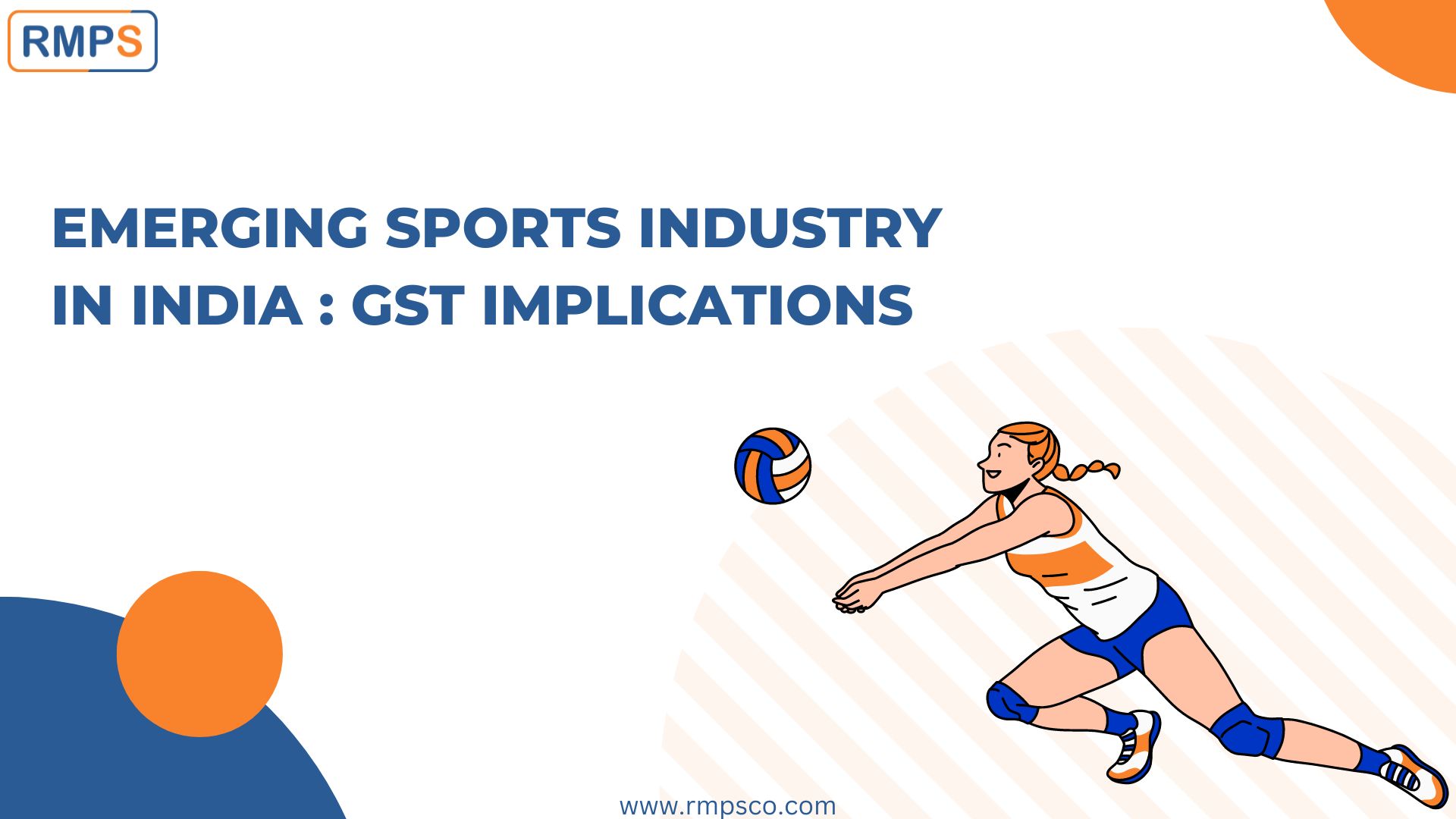
The sports industry in India is witnessing a significant transformation, with numerous government and private organizations hosting major sporting events. From the high-octane Indian Premier League (IPL) and the thrilling Pro Kabaddi League (PKL) to the action-packed Indian Super League (ISL), sports have become a major source of entertainment and business.
As this sector grows, understanding the Goods and Services Tax (GST) implications on various income streams such as participation fees, sponsorship fees, and ticket sales is crucial. This blog aims to elucidate these GST implications for stakeholders in the sports industry.
Scope of Supply Under GST
Under GST, the term ‘supply’ encompasses sale, transfer, barter, exchange, license, lease, or disposal made for a consideration by any person for business purposes. Here’s how this applies to different income sources in sports:
1. Participation Fees: Players pay participation fees to compete in sports events. In return, the organizing body provides essential services such as conducting matches, recording scores, and declaring winners. As these are considered services rendered for a fee, GST is applicable to participation fees.
2. Sponsorship Fees: Businesses often pay sponsorship fees to either purchase a franchise/team or promote their brand through sports teams. When a business entity purchases a franchise/team, GST is applicable on the bid amount paid. Conversely, when a business entity provides sponsorship, the entity must discharge GST under reverse charge.
3. Ticket Sales: Audiences buying tickets to watch sports events are also subject to GST. The tax is collected on the base price of the tickets, and if additional services (such as valet parking) are provided, these too fall under the GST ambit.
Tax Rates and HSN Codes
- Sale of Tickets: Attracts 18% GST under HSN code 998554 for events organized by government sports bodies (e.g., BCCI, All India Football Federation). For private organizers, the GST rate is 28%.
- Sponsorship Fees: Attracts 18% GST under HSN code 998397.
- Participation Fees: Covered under HSN code 9983, attracting 18% GST.
Schemes Available for Small Taxpayers
The composition scheme offers relief for small taxpayers:
- Eligibility: Manufacturers or traders with an annual turnover not exceeding Rs. 1.5 crore and service providers with an annual turnover not exceeding Rs. 75 lakhs.
- Benefits: Reduced GST rates (e.g., 1% for manufacturers/traders, 6% for service providers) and simplified compliance.
- Drawbacks: Businesses cannot utilize the input tax credit on their expenses.
Input Tax Credit (ITC)
Sports organizations incur various expenses to conduct events, including advertising, promotions, equipment purchases, security, ground maintenance, and fees for umpires and commentators. These expenses, being business-related, allow the organization to claim input tax credit to offset GST liabilities, provided they do not opt for the composition scheme.
GST Exemptions for Sports Organizations
Several exemptions under GST are available to sports organizations:
- Charitable Entities: Entities registered under Section 12AA of the Income Tax Act providing training or coaching in recreational activities related to arts, culture, or sports are exempt.
- Sponsorship of Sporting Events: Sponsorships for events organized by recognized sports bodies such as national sports federations, the Association of Indian Universities, School Games Federation of India, Central Civil Services Cultural and Sport Board, Indian Olympic Association, and the Panchayat Yuva Kreeda Aur Khel Abhiyaan Scheme are exempt.
- Services to Recognized Sports Bodies: Services provided by individuals (players, referees, umpires, coaches) for participation in events organized by recognized sports bodies are exempt. Recognized sports bodies include the Indian Olympic Association, Sports Association of India, and the International Olympic Association.
Conclusion
Navigating the GST landscape is essential for sports organizations to ensure compliance and optimize financial management. Understanding the applicable GST rates, input tax credit, and available exemptions can significantly impact the financial health of sports entities. As the sports industry continues to flourish, staying informed about these tax implications will be key to sustainable growth and success.
LinkedIn Link : RMPS Profile
This article is only a knowledge-sharing initiative and is based on the Relevant Provisions as applicable and as per the information existing at the time of the preparation. In no event, RMPS & Co. or the Author or any other persons be liable for any direct and indirect result from this Article or any inadvertent omission of the provisions, update, etc if any.
Published on: June 14, 2024
